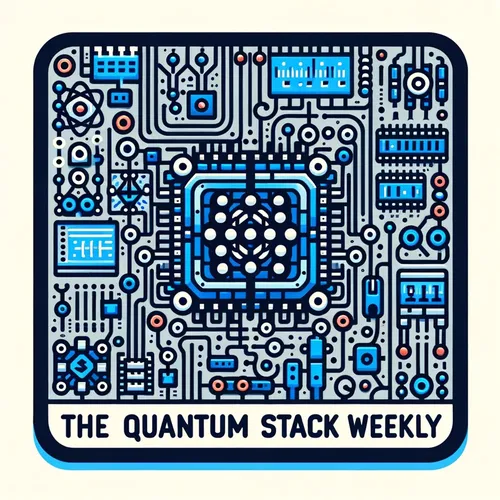Caltech's Quantum Memory Leap: Extending Lifetimes, Empowering Applications
- Author
- Quiet. Please
- Published
- Mon 01 Sep 2025
- Episode Link
- https://www.spreaker.com/episode/caltech-s-quantum-memory-leap-extending-lifetimes-empowering-applications--67583905
This is your The Quantum Stack Weekly podcast.
Every week, I’m Leo—the Learning Enhanced Operator, and tonight, I’m bristling with excitement. The quantum world never sleeps, and neither do we. Within just the past 24 hours, Caltech has unleashed a quantum memory advancement that’s causing true ripples across our discipline. Leveraging the atomic ballet of sound waves, their team has expanded quantum memory lifetimes by a factor of thirty—think about it, thirty times the persistence compared to the hottest superconducting qubits we had before.
Picture this: in Caltech’s low-temperature lab, researchers like Mohammad Mirhosseini coaxed a superconducting qubit to entangle with a mechanical oscillator—their “miniature tuning fork.” It’s not just poetic; these oscillators, vibrating at gigahertz frequencies, hold quantum states in a serene hush, allowing data to be stored and revived long after initial encoding. Suddenly, quantum memory isn’t just a fleeting possibility—it’s a robust, actionable resource. Before this, quantum memory operated on the edge, losing its grip on precious quantum information often before computations could even finish. Now, there’s breathing room—think of it as trading a sand timer for a quiet, persistent watch, keeping quantum secrets until the precise moment you’re ready to use them.
This solution doesn’t just extend lifetimes; it changes quantum architecture. Sound (acoustic) waves, unlike their brighter electromagnetic siblings, move and interact without leaking energy into the void. It means hundreds, maybe thousands, of these “tuning fork” memories have the potential to cohabit a single chip, fundamentally increasing the scale and reliability of quantum processors. Mirhosseini himself notes the next hurdle: boosting the interaction speed between charges and oscillators. Even here, Caltech’s roadmap gleams with clever engineering ahead.
If you want drama, consider this: the impact isn’t limited to quantum hardware. Just yesterday, at the 2025 IEEE Quantum Week, IonQ showcased hybrid algorithms capable of making real-world computation—energy grid optimization, quantum machine learning—faster and more precise. But these advances depend critically on memory: losing states is computational tragedy. Caltech’s leap means today’s applications—like encoding a full genome at the Sanger Institute with Quantinuum’s System H2—won’t be jeopardized by fragile memories. Instead, they’re supported with steadfast reliability.
As I walk through the quantum lab each morning, the clang of oscillators and flicker of qubits remind me of everyday resilience—how small changes (a new subway schedule, a rotated sculpture in the city park) can quietly reshape reality for millions. Quantum’s promise lies in these quiet revolutions, and today’s memory breakthrough feels like a tectonic shift. Not just for quantum physicists, but for everyone: longer memory lifetimes mean more robust algorithms, better diagnostics, smarter materials, and—one day—unbreakable encryption.
Thanks for tuning in to The Quantum Stack Weekly. If you have questions or burning topics for future episodes, send me an email at [email protected]. Don’t forget to subscribe, and remember—this has been a Quiet Please Production. For more info, check out Quiet Please dot AI.
For more http://www.quietplease.ai
Get the best deals https://amzn.to/3ODvOta
